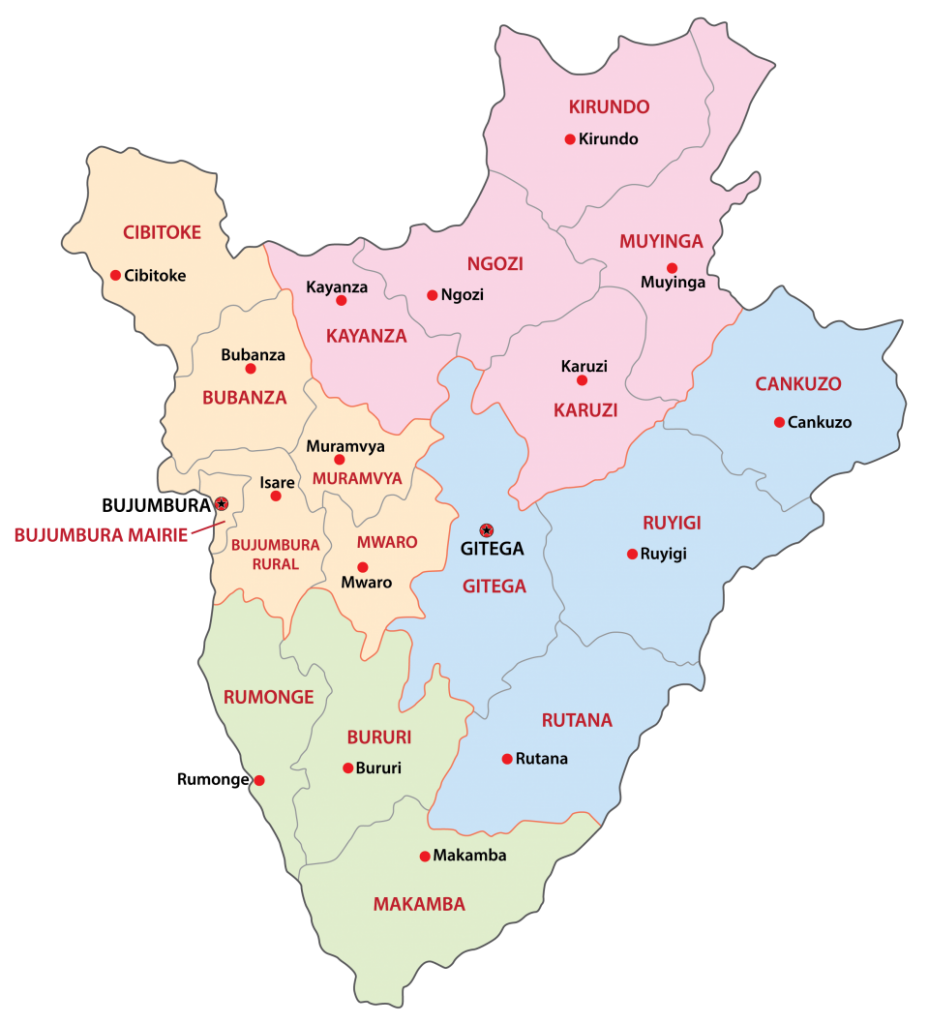Burundi is an independent African country, about the size of Wales, lying at the north end of Lake Tanganyika. It is landlocked, bordering Tanzania, Rwanda, and the Democratic Republic of Congo. It is densely populated with approximately eleven million people.

Historically, it was ruled by a king, with chiefs under him.
It was visited by the explorers David Livingstone and H. M. Stanley. It was annexed by Germany to become part of German East Africa together with Tanganyika. After the First World War it became a League of Nations protectorate under the Belgians – combined as Ruanda-Urundi with the similar-sized country, now called Rwanda, to the north. Both countries received independence, separately, in 1962. Burundi has suffered many years of inter-ethnic violence which culminated in a ten-year civil war. This resulted in millions of refugees fleeing to the neighbouring countries – D.R.Congo, Rwanda and Tanzania. Some who fled have spent most of their lives in refugee camps.

Following a peace accord, there were democratic elections in 2005 but peace is still fragile. As a result of the Peace Accord, there has been a massive resettlement process for the Internally Displaced People and resettlement of the hundreds of thousands who have returned from refugee camps abroad. Inevitably, there are conflicts over land rights. Reconciliation between those who have suffered at each other’s hands is vital for future peace.
Traditionally, Burundi has been a strongly Christian country, with 70 per cent of the population baptised Catholics. However, there are also many Protestant churches arising from the missionary movement and some indigenous independent African churches. For about 30 years from the late 1930s there was a remarkable religious movement which started in the Anglican Church in Rwanda, and became known as the East African Revival, which spread to neighbouring countries, including Burundi, and had an influence worldwide.
Burundi is a mountainous country, intrinsically healthy, and has become very densely populated, to a level that is hard to sustain. Soil erosion and exhaustion of nutrients make farming increasingly hard. The country has few natural resources and is one of the poorest in the world. In recent years, the situation has been aggravated by prolonged droughts and severe flooding, possibly related to global warming.

